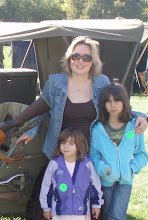Critics fear that instead of a universal library which will "dwarf the Library of Congress and all the national libraries of Europe" (Darnton, 2009), Google will become a universal bookstore. "The settlement, 'takes the vast bulk of books that are in research libraries and makes them into a single database that is the property of Google,' said Robert Darnton, head of the Harvard University library system. 'Google will be a monopoly'" (Helft, 2009). In his own treatise on the topic, Darnton fears that "Google could also become the world's largest book business—not a chain of stores but an electronic supply service that could out-Amazon Amazon" (Darnton, 2009).
Google's lead lawyer Alexander Madgillivray disagrees, contending, "This agreement expands access to many of these hard-to-find books in a way that is great for Google, great for authors, great for publishers and great for readers" (Helft, 2009). And as Paul Courant of the University of Michigan (2009) points out in his response to Darnton, "After all, bookstores are fine places to read books. . ."
In reality, the chasm may not be as great as it initially appears. Darnton, in his elegant and thoughtful article, likens the free exchange of ideas on the Internet to the period of the Enlightenment embodied by the Republic of Letters (2009). While admitting that the metaphor is not exact and articulating many of the fear of critics, Darnton's comparison serves to illuminate the great potential in the Google Books project.
A phrase often bandied about is "public good," as in Google operating for the "public good" by opening up dusty tomes to the masses or critics claiming a Google monopoly will not function for the " public good." Google is adamant in their commitment to allowing the public to access their digitized collection. The ALA, scholars and public interest groups are pledging to make sure the settlement stipulates just that. These groups already agree that the world's citizenry will benefit, "but they say others should also have rights to orphan works. And they oppose what they say amounts to the rewriting, through a private deal rather than through legislation, of the copyright rules for millions of texts" (Helft, 2009). To help mitigate the monopoly charges, the settlement stipulates Google provide free access to its full text database on a single terminal in every public library, (but still hedges its interests by charging for printing pages from the texts (Darnton, 2009)). We can hope that it is the mutual interest of all parties in the "public good " that may build the bridge across the chasm.




I can see the concern over Google's play to re-own orphaned works and how this specific issue may fan the flames of controversy. I sort of liken the issue orphan works to squatter's rights in the realm of real estate. I guess that is to say that this sort of gray area of ownership isn't without precedence.
ReplyDeleteI do feel that with strong opposing forces such as Google, AAP, and ALA there will always be some sort of stalemate that will allow for fair use for scholars to access what they need. There is no silver bullet, however I am a fan of the idea of a single full access terminal in each public library. I think this idea of an information terminal fascinating when considering Google is leading the charge into cloud computing.